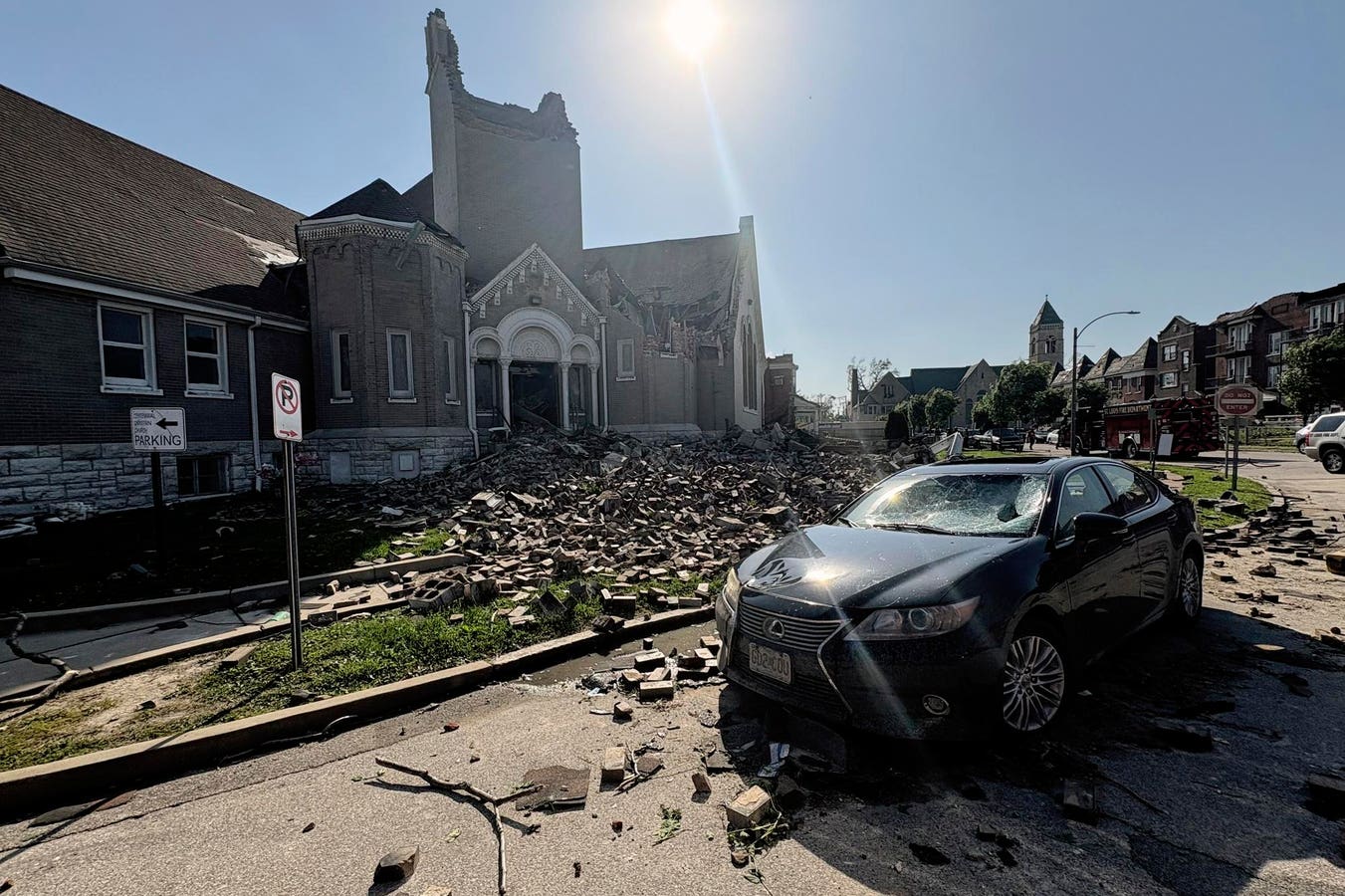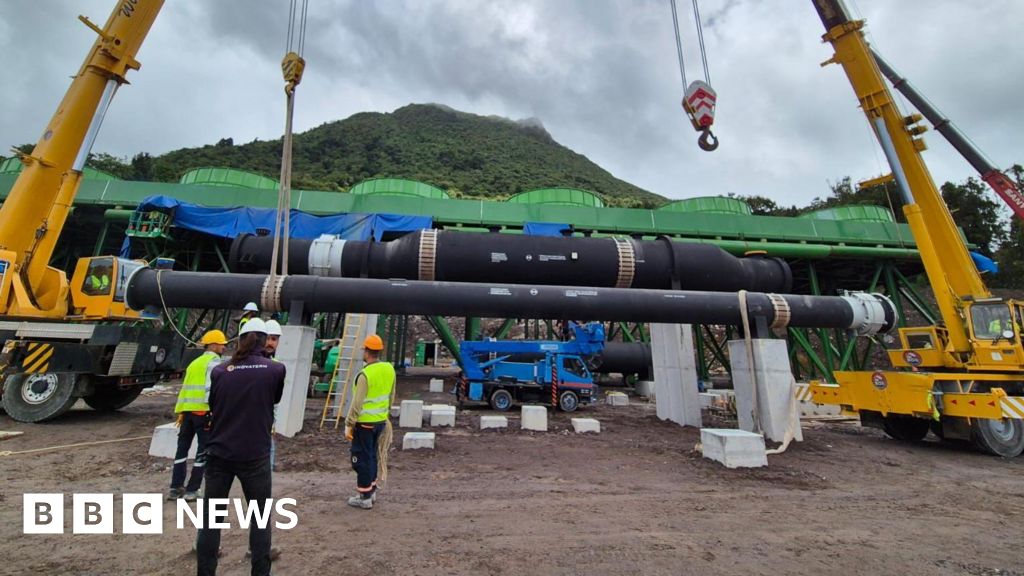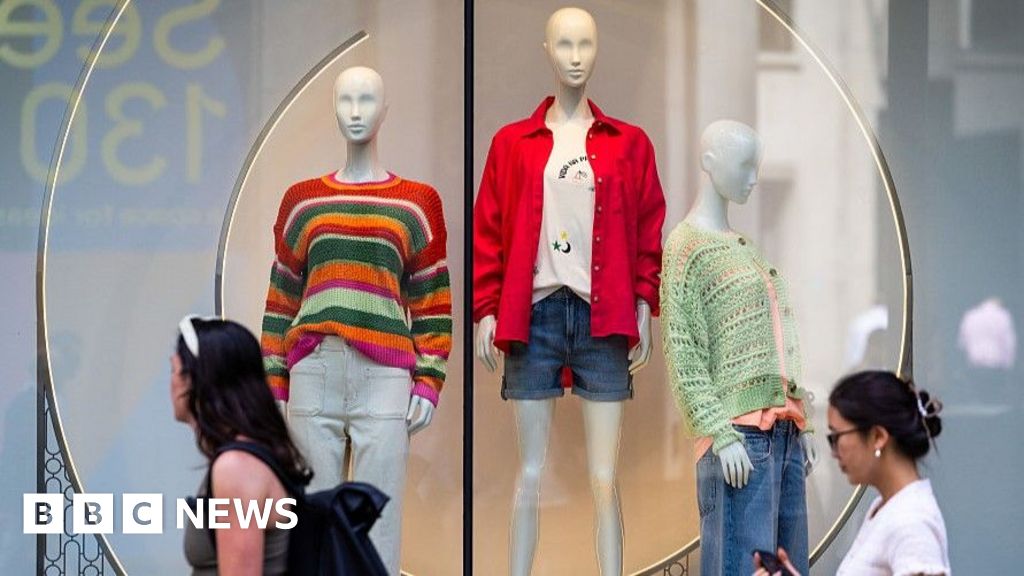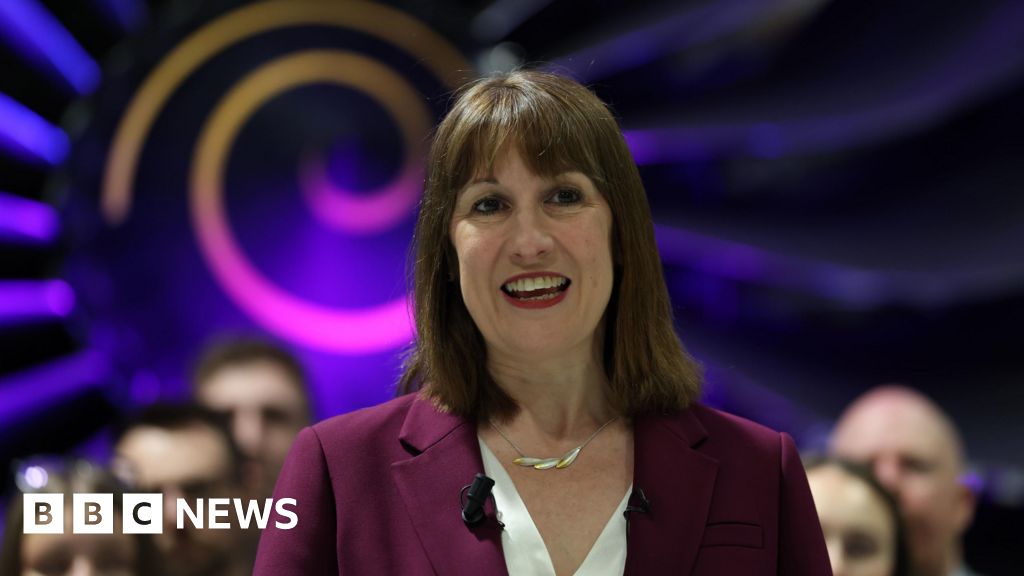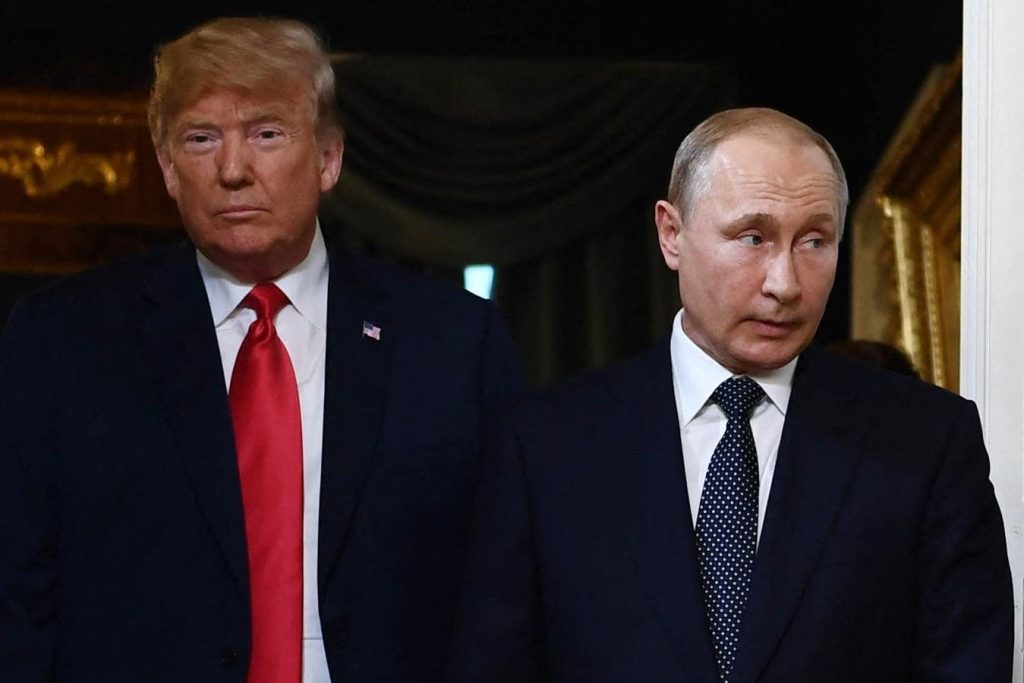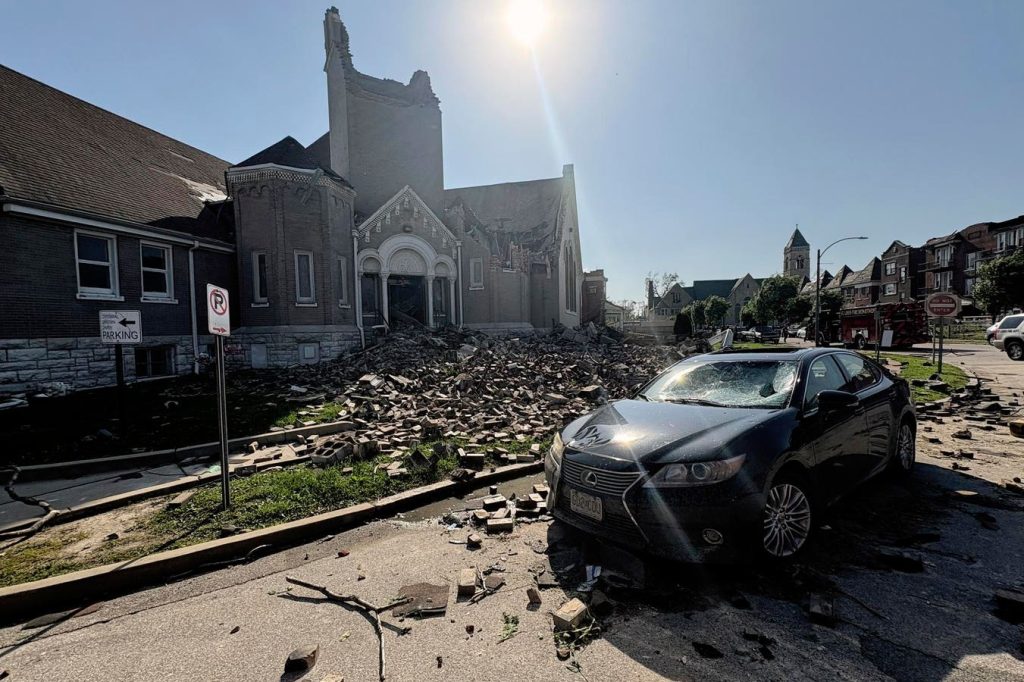Topline
President Donald Trump and his administration have suggested the president is willing to negotiate with other countries to lower his sweeping tariffs on imported goods, as dozens of countries reach out in hopes to reach trade deals—though with tariffs set to take effect Wednesday, it’s unclear how long those negotiations could take.
President Donald Trump holds up a chart on tariffs while speaking during a trade announcement event … More in the Rose Garden at the White House on April 2 in Washington, DC.
Key Facts
Trump told reporters Monday he’s “not looking at” issuing a blanket pause on his tariffs, but he was open to reaching deals with other countries on the tariffs he’s imposed “if we can make a really fair deal, a really good deal for the United States.”
Trump said there may be negotiations for some countries’ tariffs while others’ would remain “permanent,” telling reporters, “We’re going to get fair deals and good deals” with foreign countries—”and if we don’t, we’ll have nothing to do with them.”
The president’s comments come after he said on Truth Social on Monday he would start negotiations with countries that have requested meetings with his administration “immediately”—with the exception of China, which has imposed retaliatory tariffs on U.S. imports—and “tough but fair parameters are being set.”
Trump imposed widespread tariffs on foreign imports from nearly all countries last week, with the highest rates set to take effect at 12:01 a.m. EDT Wednesday, which have roiled the stock market and led to global economic chaos, with economists warning the tariffs will lead to higher prices for consumers and could spark a recession.
Nearly 70 countries have reached out about reaching deals on tariffs, Treasury Secretary Scott Bessent told Fox Business Monday afternoon, calling the current tariff rates a “maximum” rate that could “come down” after negotiations.
That will likely not happen before the midnight deadline Tuesday, however, as Bessent suggested to Fox Business that the negotiations with all of the countries that have approached the Trump administration means “it’s going to be a busy April, May, maybe into June.”
Crucial Quote
“Virtually every country wants to negotiate” with the U.S. over tariffs, Trump told reporters Monday, claiming foreign countries are “offering things to us that we wouldn’t have even thought of asking them for.”
Which Countries Have Offered To Negotiate With Trump On Tariffs?
South Korea: Trump said on Truth Social Tuesday morning he had reached “the confines and probability of a great DEAL for both countries” after having a “great call” with Acting President Han Duck-soo—which will likely include terms on the U.S.’ military protection to the country and other non-tariff issues—adding the country is sending a delegation to the U.S. to continue the negotiations.
Israel: Prime Minister Benjamin Netanyahu visited Trump at the White House on Monday, telling reporters Israel will eliminate its trade deficit with the U.S. “very quickly” and he wants his country to serve as a “model” for how to negotiate with the U.S. on trade. Trump has not yet announced any commitment to ease the 17% tariffs he levied on Israeli imports, however.
European Union: European Commission President Ursula von der Leyen said Monday that Europe has offered Trump “zero-for-zero” tariffs on industrial goods in an effort to relieve the 20% tariffs Trump imposed on the bloc, saying the EU is “always ready for a good deal.” Trump suggested he was unlikely to take that deal, however, telling reporters Monday if that was a good enough offer for him, “No it’s not. The EU has been very tough over the years.” The EU is also reportedly readying 25% retaliatory tariffs on some U.S. imports that will take effect starting April 15 without a deal.
Japan: Trump has asked his administration to start negotiations with the Japanese government, Treasury Secretary Scott Bessent said Monday, after Trump said he spoke with Japanese Prime Minister Shigeru Ishiba and the leader was “sending a top team [to the U.S.]
to negotiate” on tariffs. Ishiba previously said he would urge Trump to drop his 24% tariffs on Japanese imports and would present a negotiation “package” that could include concessions to the U.S. on liquefied natural gas, cars, agriculture and national security.
Bangladesh: The Bangladeshi government asked the Trump administration on Monday to pause its 37% tariffs on the country’s goods for three months, Bloomberg reports, as the country pledges to “substantially increase” its imports of American products.
Cambodia: Cambodia’s commerce ministry sent a letter to the Trump administration pledging to cut tariffs on its U.S. imports from 35% to 5% after Trump levied 49% tariffs on the nation—a major manufacturer of some American products, like shoes—if the U.S. opens discussions on lowering Trump’s tariffs.
United Kingdom: British officials believe they could reach a deal to remove or reduce Trump’s 10% tariffs on the U.K. “within weeks,” according to The Washington Post, as the government has already been in negotiations with the Trump administration, offering to lower tariffs on U.S. goods and preparing to offer a lower tax rate for American companies in the U.K.
Vietnam: In a letter Saturday, Vietnam’s Communist Party offered to remove all tariffs on U.S. goods in hopes of lowering the 46% tax Trump imposed for Vietnamese imports, in exchange for the Trump administration pausing its tariffs on the country’s exports by at least 45 days, and the country’s deputy prime minister traveled to the U.S. with a delegation Sunday in order to negotiate, according to The New York Times.
India: Indian officials have suggested they’re likely to try and negotiate with Trump rather than impose any major retaliatory moves, with an unnamed official telling Bloomberg the country is “seeking dialogue and not confrontation.”
Taiwan: President Lai Ching-te said Sunday Taiwan will not impose any retaliatory tariffs on U.S. imports and he wants to negotiate with the Trump administration with a goal of “zero tariffs” between the U.S. and Taiwan, Reuters reports, with the leader also pledging to increase Taiwan’s U.S. investments.
Indonesia: Indonesia’s chief economic minister Airlangga Hartarto said Sunday the country will pursue a diplomatic solution to the 32% tariffs Trump levied on the nation’s goods rather than imposing retaliatory tariffs, Reuters reports, and the country is planning to send a delegation to the U.S. to negotiate with Trump.
Lesotho: Trump levied crippling 50% tariffs on the tiny landlocked African country, whose textile industry provides denim to top American brands like Levi’s—and Lesotho’s government is planning to send a delegation to Washington as soon as this week to negotiate, The Washington Post reports.
Australia: Australian Prime Minister Anthony Albanese has decried Trump’s 10% tariffs on the country as being unfair—given that Australia does not levy any tariffs on U.S. goods—but has said the government will not impose any retaliatory tariffs in response, saying Tuesday the country will increase its trade in the Asia-Pacific region, but will “continue to negotiate, of course, with the United States looking for a better deal for Australia because reciprocal tariffs would, of course, be zero.”
How Long Will The Negotiations Take?
Bessent has not given a timeline for how long the negotiations could take. The Treasury Secretary said Monday that Japan would “get priority” in negotiations “because they came forward very quickly,” but deflected when asked if those negotiations could wrap up even within the next week or two. “Negotiations will be tough,” Bessent said.
Will Trump Pause The Tariffs?
Trump economic adviser Kevin Hassett did not rule out the possibility of a 90-day pause on the tariffs Tuesday, just saying, “I think the president is gonna decide what the president is gonna decide.” White House press secretary Karoline Leavitt then more explicitly denied the possibility, however, saying reports there could be a pause are “fake news,” and Trump told reporters Monday he was “not looking at” pausing the tariffs.
Surprising Fact
Trump levied tariffs on several uninhabited islands or places with only a few residents, such as the Heard and McDonald Islands, an Australian territory that’s primarily inhabited by penguins. It will likely be more difficult for those nations to reach any negotiations about lowering their tariffs. Lutnick defended the tariffs on those countries Sunday, claiming to CBS News they were necessary or else other countries could try to use them to get around Trump’s tariffs.
What Has The Trump Administration Said About Negotiating On Tariffs?
Trump’s willingness to negotiate comes as some of his aides had claimed the president was not open to making deals, especially in the short term. Trump “is not going to back off what he announced yesterday. He’s not going to back off,” Lutnick told CNN on Thursday after Trump’s tariffs were announced, also telling CNBC, “I don’t think the word exemption is going to be a factor. I don’t think that’s such a thing.” Lutnick maintained that stance Sunday, telling CBS News, “There’s no postponing [the tariffs taking effect], they’re definitely going to stay in place for days or weeks.” Trump trade adviser Peter Navarro has similarly suggested the tariffs are not up for discussion, writing in an op-ed Monday for the Financial Times, “This is not a negotiation”—even as Trump himself suggested he was willing to make deals hours later. In an interview with Fox News on Sunday, Navarro decried what he called “non-tariff cheating” by other countries, suggesting countries will have to make concessions beyond lowering tariffs on U.S. goods in order to get the White House to lower tariffs on their products. “We’re always willing to listen .. if you want to come and talk to us,” Navarro said about other countries negotiating with the U.S.
Key Background
Trump imposed sweeping tariffs on other countries Wednesday, fulfilling a longtime campaign promise to levy tariffs on foreign goods in an effort to return manufacturing to the U.S. The president’s plan has long been decried by economists, who have warned any tariffs would raise prices for consumers and harm the U.S. economy—a scenario that started playing out after Trump announced his tariffs, as stocks plunged and economists forecasted a recession could now be on the way. Trump has continued to double down on his economic plan despite the chaos his tariffs have caused, telling reporters Monday they are “the only chance our country will have to reset the table” on trade and that while other presidents would not be willing to cause such economic chaos by imposing them, “I don’t mind going through it, because I see a beautiful picture at the end.”
Further Reading
ForbesTrump And Advisors Offer Contradictory Takes On Tariff Negotiations—What To KnowBy Siladitya Ray
ForbesHere’s The Full List Of Trump’s Reciprocal Tariffs Announced WednesdayBy Molly Bohannon
ForbesTariffs Cause Another Stock Market Rout—Losses Approach $5 Trillion As Dow Plummets Another 2,200 PointsBy Derek Saul



